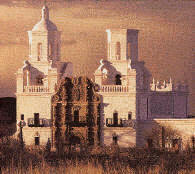

Creation or Chance?
| Net Abbey home page back to About God Page |
|
Suppose a person landed on Mars and there laying on the ground before him,
is a Nikon Camera.
He might think that they lied to him that he was the first to land on Mars - the Russians had been there first and left a camera. He would not think that the camera just made itself because everyone knows a camera requires extensive engineering and manufacturing. So how could this world, much of the complexity of which man STILL cannot understand, let alone engineer or create, be a product of "random" chance i.e. just "happened" without an Act of Engineering or creation? When Hubble discovered that the universe was quickly moving apart, he surmised that it had been once together. The "BIG BANG" theory was born and the idea of the "steady state" universe was history. But the "Big Bang" left scientists with a worse dilemma. If the universe had a beginning, who or what was there before the universe? Since then, scientists have identified 15 cosmological constants if, even one of which was slightly different, would have made the universe incompatible with life. That is, information or intelligence appears to have not only proceeded the creation of the universe from "the Big Bang" but also to have engineered things in such a way as to develop life and is, many feel also, sustaining life. The following schema has been proposed for the development of the "IQ" of the universe: 1. The laws of nature - complex cosmological constants etc. This has not only converted several atheist scientists including Anthony Flew (wrote 30 books on atheism before he changed his mind and decided God exists) and Francis S. Collins, the director of the human genome project who writes that he came to a belief in God through science. |